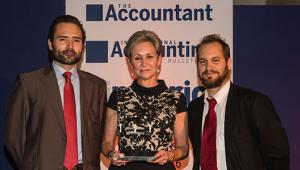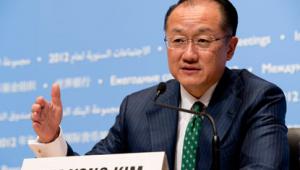By Nick Mann | 18 October 2012
An alliance between aid donors, development banks and the International Federation of Accountants has set out how it plans to improve the effectiveness of aid by building professional accountancy organisation capacity in developing and emerging economies.
The steering committee of the Memorandum of Understanding to Strengthen Accountancy and Improve Collaboration (MOSAIC) met this week in London to discuss the challenges involved in achieving this goal.
This was the second meeting of the committee since the memorandum was signed at the Fourth High Level Forum on Aid Effectiveness, held in Busan, South Korea, in November 2011. Signatories include aid agencies, the International Federation of Accountants, the World Bank, the three main regional development banks, the UK Department for International Development and the US Agency for International Development.
During this week’s meeting, which was hosted by CIPFA, representatives of the signatories were presented with a draft Global Development Report, which outlined the current status of professional accountancy organisation development and priorities for the future.
According to the report, building PAO capacity would ‘improve the quality of public and private sector accountancy and financial management’. It would also strengthen national institutions and enable them to focus on the true aims of aid – improving peoples’ health, education and livelihoods.
‘Although PAOs around the world hold the potential to significantly contribute to national economic and social development, many struggle to fulfil their functions and fall short of realising their full potential,’ it added.
Speaking to PF International, MOSAIC steering committee co-chair Anthony Hegarty explained: ‘Weak capacity is a key cross-cutting theme emerging from extensive Public Financial Management and Reports on the Observance of Standards and Codes accounting and auditing diagnostics that have been undertaken by governments and donors in recent years.'
Hegarty, who is chief financial management officer at the World Bank, added: ‘If you can put in place high-quality financial management, reporting and auditing, this will lead to financial sector development, economic growth and ultimately poverty alleviation.’
The majority of the support given by the MOSAIC initiative will go to individual countries’ PAOs, Hegarty said, but he also highlighted the importance of international standards. Supporting the creation of systems that ensure countries implement up-to-date versions of standards such as the International Public Sector Accounting Standards is among the MOSAIC priorities.
Other main issues include monitoring the development of the accounting profession in fragile and early emerging economies, as well as helping PAOs to build a ‘coherent operating model’ to enable them to play a bigger role in furthering financial sector and economic growth.
Deborah Williams, who co-chairs the steering committee alongside Hegarty, said MOSAIC faced an ‘absolutely huge challenge’. In particular, she noted that capacity issues were not limited to developing nations, with emerging economies in the Middle East also lacking well developed PAOs.
Williams, who is also chair of the IFAC PAO Development Committee, explained that the goal was to develop ‘sustainable’ PAOs.
‘From an IFAC point of view that would be that they can apply for membership of IFAC. That would mean they comply with the statement of membership obligations,’ she said.
She said it was possible to help organisations meet the standards ‘because my committee has been doing it… but it needs other partners and it needs money’.
Last month, the Australian Agency for International Development became the latest body to formally sign up to the initiative.
David Ostermeyer, chief financial officer for USAID, said he hoped his organisation’s involvement would encourage other donor bodies to join.
He added that MOSAIC was a ‘critical way’ of advancing the US’s ‘USAID Forward’, a comprehensive reform agenda to make the agency more effective. One element of the agenda was trying to increase allocations of aid to partner governments and more local partners.
He added: ‘If capacity is built in the public and private sector to manage our resources there’s a better chance there’ll be better development.’













